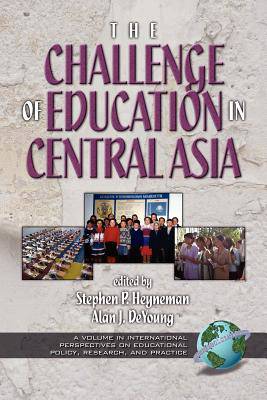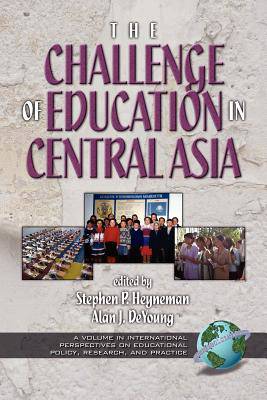
- Afhalen na 1 uur in een winkel met voorraad
- Gratis thuislevering in België vanaf € 30
- Ruim aanbod met 7 miljoen producten
- Afhalen na 1 uur in een winkel met voorraad
- Gratis thuislevering in België vanaf € 30
- Ruim aanbod met 7 miljoen producten
Zoeken
The Challenges of Education in Central Asia (PB)
€ 116,95
+ 233 punten
Omschrijving
A look at the challenges facing education in Central Asia. In many ways, the story of education since the beginning of the transition in Central Asia is integrated with similar processes in other parts of the former Soviet Union. It may not explain everything, but understanding the challenges throughout the 15 former republics is helpful in understanding the progress and setback in the Central Asian Republics. Most importantly, the Central Asia republics have demonstrated their independence in the adherence of Western-recommendations; they have articulated their demand for respect on their own terms, and not just as the recipient of strategies developed elsewhere. One would hope that this sense of independence and of autonomy of spirit would continue, but that it would not interfere; with the universal principles that pertain to all modern societies: those of equality of opportunity, and the necessity for achieving consensus over what to teach about history that is fair to all citizens.
Specificaties
Betrokkenen
- Uitgeverij:
Inhoud
- Aantal bladzijden:
- 404
- Taal:
- Engels
- Reeks:
Eigenschappen
- Productcode (EAN):
- 9781931576482
- Verschijningsdatum:
- 5/09/2000
- Uitvoering:
- Paperback
- Formaat:
- Trade paperback (VS)
- Afmetingen:
- 152 mm x 229 mm
- Gewicht:
- 589 g

Alleen bij Standaard Boekhandel
+ 233 punten op je klantenkaart van Standaard Boekhandel
Beoordelingen
We publiceren alleen reviews die voldoen aan de voorwaarden voor reviews. Bekijk onze voorwaarden voor reviews.










